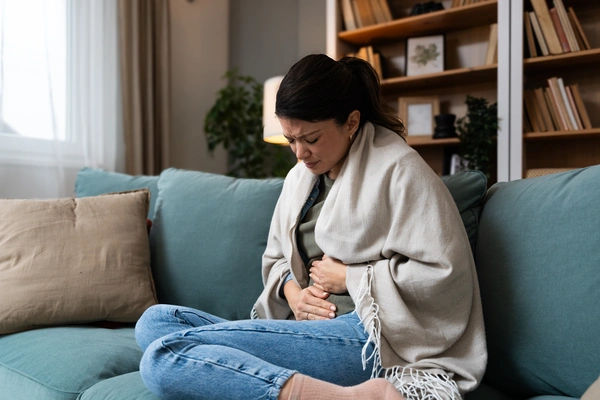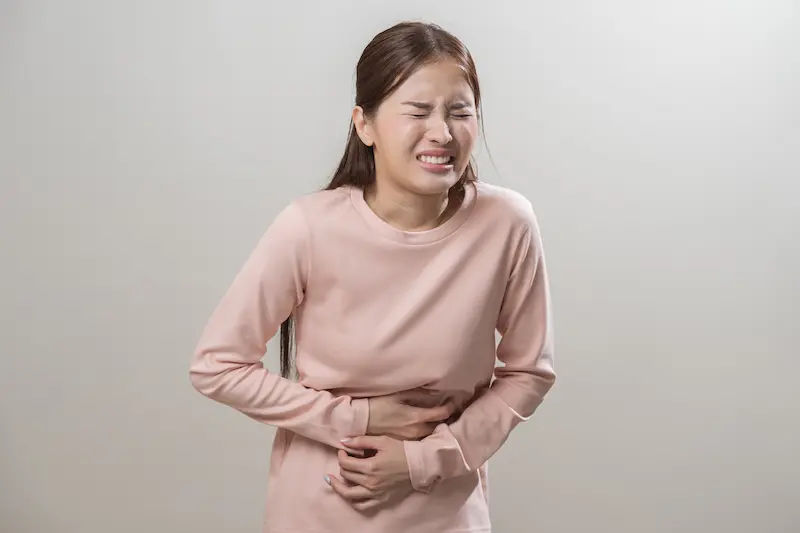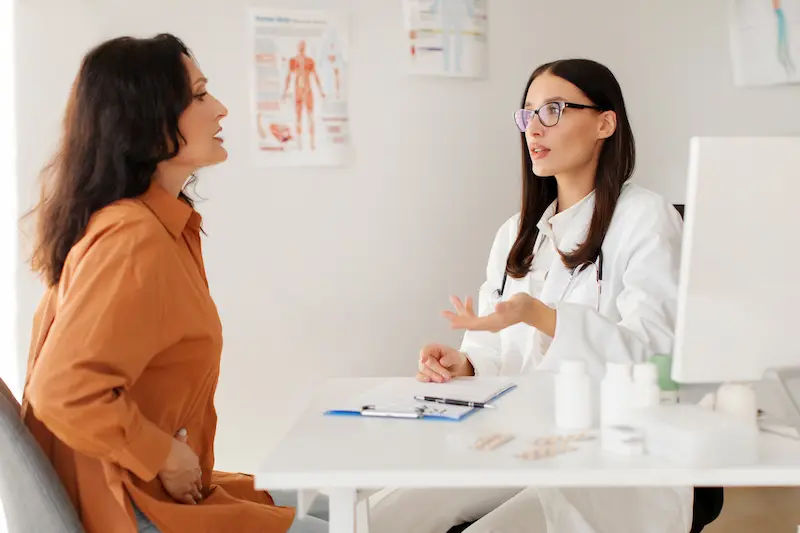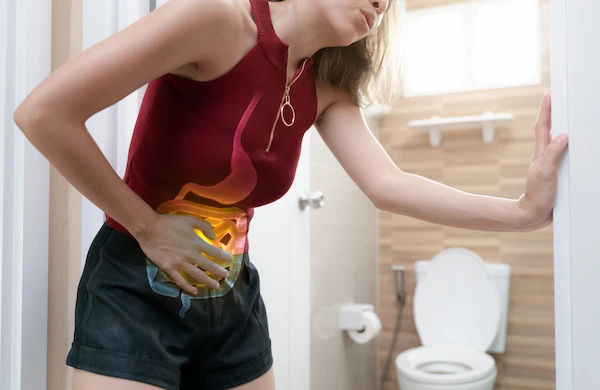Guide to Stop Loose Motions With 3 Simple Homemade Remedies
Find quick relief with our guide to stop loose motions using 3 simple homemade remedies. Learn natural ways to ease discomfort and restore digestion.

Written by Dr. Siri Nallapu
Reviewed by Dr. D Bhanu Prakash MBBS, AFIH, Advanced certificate in critical care medicine, Fellowship in critical care medicine
Last updated on 13th Jan, 2026
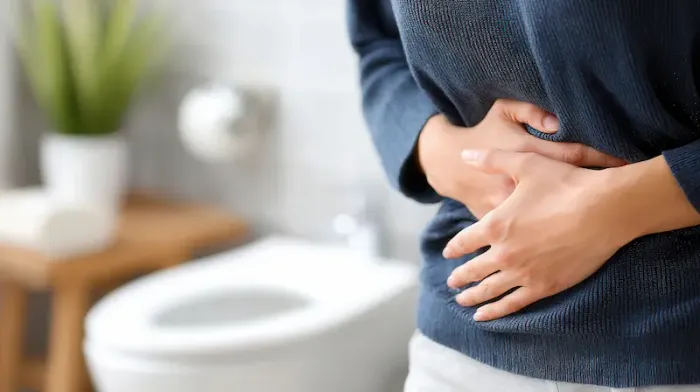
Introduction
Loose motions, or diarrhoea, can strike unexpectedly, turning your day upside down. It's not just uncomfortable; it can lead to dehydration and sap your energy. While over-the-counter solutions are available, many people prefer a gentler, natural approach first. The good news is that your kitchen likely holds the key to effective relief. This guide will walk you through three powerful, science-backed homemade remedies that are easy to prepare and can help you regain control and feel better quickly. We'll cover the classic ORS, the soothing power of probiotics, and the binding effect of the BRAT diet, explaining not just the "how" but the "why" they work so effectively.
Understanding Loose Motions and the Goal of Treatment
Before diving into the remedies, it's helpful to understand what's happening in your body. Loose motions occur when your digestive system doesn't absorb enough water from your stool, or when it produces extra fluid, resulting in watery bowel movements. This can be caused by viruses (like norovirus), bacteria (from contaminated food or water), parasites, certain medications, or even food intolerances.
The primary goals of any effective diarrhoea treatment plan are:
1. To prevent or reverse dehydration.
2. To ease uncomfortable symptoms like cramping.
3. To help firm up stools.
4. To replenish lost nutrients and electrolytes.
The following three remedies address these goals directly with simple, accessible ingredients.
Remedy 1: The Lifesaving Homemade Oral Rehydration Solution (ORS)
The homemade Oral Rehydration Solution (ORS) can help restore fluids and electrolytes.
Why it Works: The Science of Rehydration
When you have diarrhoea, you lose vast amounts of water and essential electrolytes like sodium and potassium through your stool. These electrolytes are crucial for maintaining your body's fluid balance, nerve function, and muscle contractions. Plain water alone cannot replace them efficiently. This is where an Oral Rehydration Solution (ORS) becomes critical. It's a precisely balanced mixture of sugar and salt that helps your intestines absorb water and electrolytes much more effectively than water by itself.
How to Make Your Own ORS at Home
You can easily whip up this effective electrolyte drink with pantry staples.
Ingredients:
• 1 litre (about 4 cups) of clean, boiled, and cooled water
• 6 level teaspoons of Sugar
• 1/2 level teaspoon of Salt
Instructions:
1. Ensure the water is safe to drink. If in doubt, boil it first and let it cool.
2. In a clean pitcher, add the sugar and salt to the water.
3. Stir vigorously until both are completely dissolved.
The solution should taste no saltier than tears. If it’s too salty, it can make nausea worse.
Dosage:
Adults: Sip small amounts frequently throughout the day. Aim to drink at least 2-3 litres of ORS after each loose bowel movement.
Children: Consult a doctor for dosage, but generally, offer 1-2 teaspoons every few minutes. Using a syringe or spoon can help.
Consult a General Physician for the best advice
Remedy 2: Probiotic Powerhouses - Yoghurt and Buttermilk
For better gut health during recovery, probiotics can make a big difference. Probiotic powerhouses yoghurt and buttermilk help restore healthy gut bacteria.
Gut Health and the Role of Good Bacteria
Often, diarrhoea is caused by an imbalance in the gut microbiome, where harmful bacteria outnumber the beneficial ones. This is where probiotics for diarrhoea come into play. Probiotics are live, friendly bacteria that help restore the natural balance of your gut flora. They crowd out the harmful bacteria, produce substances that fight them off, and help strengthen the gut lining. Studies have shown that certain probiotics can reduce the duration of infectious diarrhoea by about a day.
How to Use Yoghurt and Buttermilk
Plain, Unflavored Yoghurt: This is your best bet. Avoid varieties with added sugars or fruits, as sugar can worsen diarrhoea. The live active cultures (look for labels mentioning Lactobacillus or Bifidobacterium) are what you're after.
How to consume: Eat a small bowl of plain yoghurt 2-3 times a day. You can have it as is or add a pinch of salt.
Buttermilk (Chaas): This traditional Indian drink is a superb home remedy for stomach upset. It is lighter than yoghurt and is often easier to digest. It is cooling, soothing, and packed with probiotics.
How to make: Blend one part plain yoghurt with three parts water. You can add a pinch of salt, roasted cumin powder (aids digestion), and fresh cilantro.
How to consume: Sip on a glass of buttermilk with your meals or in between.
Note: If your diarrhoea is caused by a lactose intolerance, consult a doctor before using dairy-based probiotics, though the lactose content in these fermented foods is typically very low.
Remedy 3: The BRAT Diet for Binding and Soothing
The BRAT diet (Bananas, Rice, Applesauce, Toast) has long been the gold standard for managing an upset stomach and treating diarrhoea at home.
What is the BRAT Diet?
The BRAT diet is an acronym for Bananas, Rice, Applesauce, and Toast. These are bland, low-fibre foods that are binding, meaning they help make stools firmer. They are also easy to digest and unlikely to irritate your stomach further, making them perfect bland foods for diarrhoea.
A Closer Look at Each Component
• Bananas: This is a star player. Bananas are rich in potassium, a key electrolyte lost during diarrhoea. They also contain pectin, a soluble fibre that helps absorb excess liquid in the intestines and add bulk to stools. Furthermore, they contain inulin, a prebiotic that feeds the good bacteria in your gut.
• Rice (White): White rice is very easy to digest and acts as a binding agent. The starchy water left over after cooking white rice (rice kanji) is also an excellent, gentle rehydrating fluid.
• Applesauce: Cooked apples are a good source of pectin. However, ensure it is unsweetened applesauce, as added sugar can be counterproductive.
• Toast (White): White bread is another bland, low-fibre option that can help add some substance without upsetting your stomach. Avoid whole grains until you've recovered, as the high fibre can be harsh.
How to Implement It: Start by introducing small portions of these foods once the worst of the diarrhoea has passed and you feel you can keep solids down. This is not a long-term diet but a short-term strategy for managing diarrhoea symptoms.
Supportive Care and Foods to Avoid
Managing loose motions requires both care and dietary caution. Supportive care and foods to avoid play a key role in faster recovery and better digestion.
What Else to Sip On
In addition to ORS, other soothing fluids can help:
• Coconut Water: A natural source of electrolytes like potassium.
• Herbal Teas: Ginger tea (anti-inflammatory) or peppermint tea (soothes stomach cramps) can be comforting. Serve them lukewarm.
• Clear Broth: Chicken or vegetable broth provides hydration and essential salts.
Foods to Steer Clear Of
While you recover, it's crucial to avoid foods that can aggravate your digestive system:
• Dairy (except the probiotic sources mentioned)
• Fried, greasy, or spicy foods
• High-fibre foods like raw vegetables and whole grains
• Sugary foods, sodas, and artificial sweeteners (they can draw water into the intestines)
• Caffeine and alcohol (they are dehydrating)
When to See a Doctor: Recognizing Red Flags
While home remedies for gastroenteritis are effective for mild cases, it is vital to know when to seek professional medical advice. Contact a doctor immediately if you or your child experience:
• Diarrhoea for more than 48 hours.
• Signs of severe dehydration: dizziness, little to no urination, sunken eyes, extreme thirst, dry mouth/skin.
• A fever above 102°F (39°C).
• Severe abdominal or rectal pain.
• Stools containing blood or pus.
• If the patient is an infant, young child, or elderly individual, as they dehydrate much faster.
Conclusion
Dealing with loose motions can be a draining experience, but you don't have to feel powerless. Your kitchen offers a powerful first line of defense. Remember, the hierarchy of action is clear: Start with rehydration using the homemade ORS to replace lost fluids and electrolytes. Then, introduce probiotics like yoghurt and buttermilk to help your gut fight back and restore balance. Finally, use the binding, soothing foods of the BRAT diet to help firm things up as you start to recover. By listening to your body, avoiding irritants, and using these simple, natural strategies, you can effectively manage your symptoms and get back to feeling like yourself. Always err on the side of caution and consult a healthcare provider if symptoms are severe or persistent.
Consult a General Physician for the best advice
Consult a General Physician for the best advice

Dr. Rajib Ghose
General Physician/ Internal Medicine Specialist
25 Years • MBBS
East Midnapore
VIVEKANANDA SEBA SADAN, East Midnapore

Dr. Pinaki Mukhopadhyay
General Physician/ Internal Medicine Specialist
32 Years • MBBS
Kolkata
MCR SUPER SPECIALITY POLY CLINIC & PATHOLOGY, Kolkata
(25+ Patients)

Dr. Tamal Bhattacharyya
Pulmonology Respiratory Medicine Specialist
8 Years • MBBS, MD (Respiratory Medicine)
Kolkata
MCR SUPER SPECIALITY POLY CLINIC & PATHOLOGY, Kolkata

Dr. Swarna Deepak K
General Physician/ Internal Medicine Specialist
20 Years • MBBS: MD (Internal Medicine) MRCP (UK), EDIC (European Diploma in Critical Care), IDCCM, IFCCM (Critical Care), FID (Royal Liverpool Academy)
Hyderabad
Apollo Hospitals Jubilee Hills, Hyderabad
(425+ Patients)

Dr Aakash Andgi
General Physician/ Internal Medicine Specialist
9 Years • MBBS MD
Bengaluru
Apollo Clinic, JP nagar, Bengaluru
Consult a General Physician for the best advice

Dr. Rajib Ghose
General Physician/ Internal Medicine Specialist
25 Years • MBBS
East Midnapore
VIVEKANANDA SEBA SADAN, East Midnapore

Dr. Pinaki Mukhopadhyay
General Physician/ Internal Medicine Specialist
32 Years • MBBS
Kolkata
MCR SUPER SPECIALITY POLY CLINIC & PATHOLOGY, Kolkata
(25+ Patients)

Dr. Tamal Bhattacharyya
Pulmonology Respiratory Medicine Specialist
8 Years • MBBS, MD (Respiratory Medicine)
Kolkata
MCR SUPER SPECIALITY POLY CLINIC & PATHOLOGY, Kolkata

Dr. Swarna Deepak K
General Physician/ Internal Medicine Specialist
20 Years • MBBS: MD (Internal Medicine) MRCP (UK), EDIC (European Diploma in Critical Care), IDCCM, IFCCM (Critical Care), FID (Royal Liverpool Academy)
Hyderabad
Apollo Hospitals Jubilee Hills, Hyderabad
(425+ Patients)

Dr Aakash Andgi
General Physician/ Internal Medicine Specialist
9 Years • MBBS MD
Bengaluru
Apollo Clinic, JP nagar, Bengaluru
